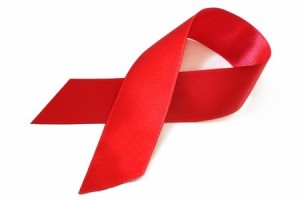DOH denies shortage of ARV drugs to treat HIV

ARV treatment is a combination of medications given to HIV-positive patients to delay the progression of the infection and the onset of full-blown Acquired Immune Deficiency Syndrome (AIDS).
“We have enough medicines for HIV patients,” said Dr. Lyndon Lee Suy, spokesman of the Department of Health, in response to reports of apparent shortage of the ARV drug in HIV treatment hubs.
Several HIV patients in the country are receiving free ARV treatment from the health department.
However, some of them claimed that the lack of ARV supply the past weeks have prompted them to skip taking the medicine, while others said they were asked to switch to other medicines.
“[But it’s] difficult to switch meds due to side effects,” one patient claimed.
Article continues after this advertisementBut Lee Suy assured that the problem has been addressed.
Article continues after this advertisement“Actually it didn’t reach the point of having a shortage. Based on our guidelines, we should be maintaining certain level or amount of the medicine. It almost got to that point, but it has already been addressed,” he said, explaining that problem stemmed from the delayed delivery of the supply.
“[The problem] was more on logistics, but it’s not a major concern. We have enough medicines,” Lee Suy added.
The Global Fund to Fight Aids, Tuberculosis and Malaria, was the primary source of the free ARV supplies for infected individuals like those in the Philippines.
The DOH said that it dispensed the ARV medicines for free so the health department can reach out to more HIV positive people.
From 1984 until March this year, there are 17,948 HIV cases recorded in the country.
The DOH is seriously pushing for the amendment of Republic Act 8504 or the Philippine AIDS Prevention and Control Act of 1998 in order to allow the implementation of mandatory human immunodeficiency virus (HIV) screening, particularly for high-risk groups.
But Lee Suy clarified that the mandatory HIV screening they have been pushing would not be for the general public.
The DOH said it has been mulling mandatory screening by health providers for patients who may be suspected to have HIV infection based on a risk-based assessment.
Among the high-risk groups identified by the DOH as prone to AIDS (Acquired Immune Deficiency Syndrome) and HIV are female sex workers, males having sex with males (MSMs), injecting drug users (IDUs), those who undergo surgery or operation, and pregnant women.
“But in due time, we may explore other groups or certain high-risk population that we may also require to undergo mandatory HIV test,” he said.
The DOH official also said no definite plans have been made to implement the mandatory testing.
“These are all part of the exploratory phase, no clear guidelines, nothing definite yet whether it can be implemented or not. But of course, it would be better if it is implemented to improve the way we approach our patients,” Lee Suy said.
Lee Suy said the DOH has been looking forward to amending the AIDS law to improve services to HIV/ADS patients.
“We want a wider target to avail of the services,” he said. “The law was passed in 1989. Our knowledge of HIV AIDS at the time was not as wide as our knowledge now. We are much more aware of the HIV/AIDS now.”
RELATED STORIES
DOH draws activists’ ire for ‘mandatory’ HIV testing
LGUs urged to fund AIDS treatment
Victims: Discrimination in society more painful than having the virus